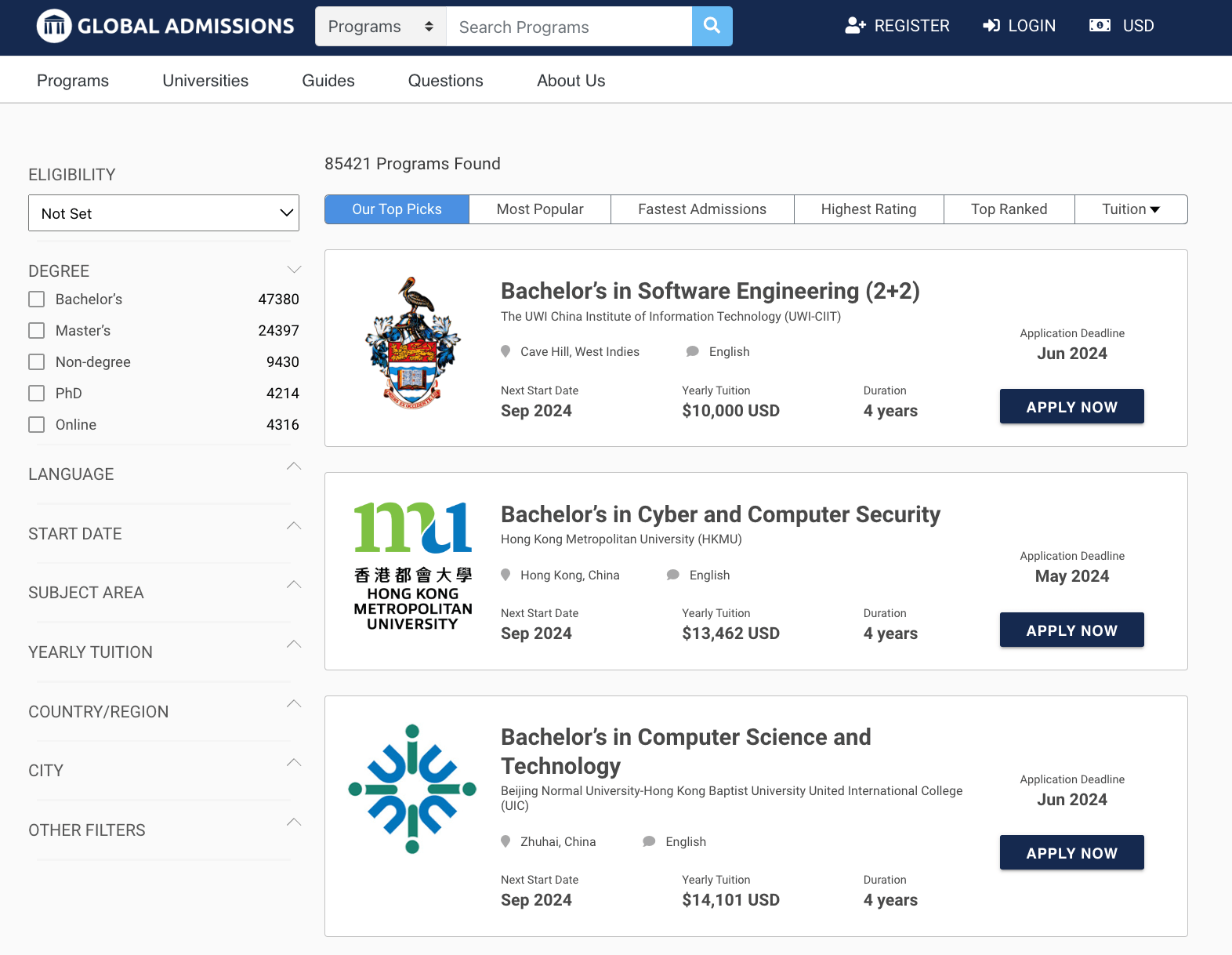Anthony Bourdain: “Travel changes you. As you move through this life and this world you change things slightly, you leave marks behind, however small. And in return, life—and travel—leaves marks on you.”
Did you know
You don’t need money to study abroad!
Sure, it helps!
But here are 50 free universities with 0 tuition fee.
Actually 57!
Aside from studying in one of these free universities
Here are
100 Tips to Study Abroad for Free
Studying abroad is a dream for many students around the world, offering exposure to new cultures, languages, and educational systems.
However, the cost can often be a barrier. Here are 100 tips to help you study abroad for free or at a significantly reduced cost:
1. Planning and Preparation
- Start Early: Begin planning at least one year in advance.
- Research Extensively: Look for countries with affordable or free tuition.
- Seek Guidance: Consult with study abroad advisors at your institution.
- Choose Your Destination Wisely: Some countries offer free tuition to international students.
- Consider Exchange Programs: These often come with waived tuition fees.
- Look for Full Scholarships: They cover tuition, room, and sometimes even living expenses.
- Apply for Government-Funded Scholarships: Such as Fulbright, DAAD, Chevening, etc.
- Utilize University Scholarships: Universities around the world offer scholarships for international students.
- Check for Bilateral Agreements: Some countries have agreements that allow free or reduced-cost education.
- Focus on Academic Excellence: Many scholarships require a strong academic record.
2. Financial Tips
- Budget Wisely: Understand the cost of living in your chosen country.
- Save Early: Start saving money well before your intended study abroad period.
- Work Part-Time: Some student visas allow you to work part-time.
- Use Student Discounts: Take advantage of student discounts for travel and cultural events.
- Cook at Home: Eating out less can significantly reduce expenses.
- Share Accommodations: Living with roommates can cut housing costs.
- Apply for Travel Grants: Some organizations offer grants for international travel.
- Minimize Banking Fees: Use banks that have low international fees.
- Look for Affordable Health Insurance: Required by many student visas.
- Consider Low-Cost Airlines and Travel Options: Be flexible with travel dates and times.
3. Academic Strategies
- Choose Affordable Programs: Not all programs cost the same.
- Attend Free Universities: Countries like Germany offer free tuition to international students.
- Leverage Online Learning: Some institutions offer free credits through online courses.
- Attend Community College First: Lower cost before transferring to a university abroad.
- Get Dual Degrees: These programs can be more cost-effective.
- Study Languages: Some language programs offer significant scholarships.
- Research Assistants: Some positions offer tuition waivers.
- Volunteer for Experiments: Universities often pay or provide other benefits.
- Apply for Resident Advisor Positions: These often come with free housing.
- Seek Out Internships: Some are paid and provide work experience.
4. Scholarship Applications
- Write Outstanding Essays: Make your application stand out.
- Apply to Many Scholarships: Don’t put all your eggs in one basket.
- Meet All Requirements: Double-check that you meet all application criteria.
- Use a Professional Email Address: This ensures you look serious and professional.
- Get Strong Letters of Recommendation: From academics or professionals.
- Follow Up on Applications: Ensure your application has been received and is complete.
- Apply Early: Meeting early deadlines can sometimes give you an advantage.
- Prepare for Interviews: Some scholarships require them.
- Keep a Portfolio: Especially if you are applying for creative or research programs.
- Maintain a High GPA: Many scholarships have a GPA cutoff.
5. Miscellaneous
- Join Student Networks: For advice and potential opportunities.
- Participate in Competitions: Some include scholarships as prizes.
- Attend Study Abroad Fairs: To gain more information and network.
- Check for Alumni Scholarships: Some universities offer scholarships for alumni of certain schools.
- Use Library Resources: For free access to costly books and journals.
- Consider Rural or Less Popular Cities: Often cheaper than major cities.
- Learn the Local Language: Some scholarships require proficiency in the local language.
- Check for Community Scholarships: Local communities sometimes offer support to international students.
- Keep an Eye on Exchange Rates: This can affect your budget significantly.
- Consult with Former Students: They can offer practical advice and tips.
Inspiring Quotes
- Nelson Mandela: “Education is the most powerful weapon which you can use to change the world.”
- Malala Yousafzai: “One child, one teacher, one book, one pen can change the world.”
- Anthony Bourdain: “Travel changes you. As you move through this life and this world you change things slightly, you leave marks behind, however small. And in return, life—and travel—leaves marks on you.”
- Maya Angelou: “Perhaps travel cannot prevent bigotry, but by demonstrating that all peoples cry, laugh, eat, worry, and die, it can introduce the idea that if we try and understand each other, we may even become friends.”
- Mark Twain: “Travel is fatal to prejudice, bigotry, and narrow-mindedness, and many of our people need it sorely on these accounts.”
- Michelle Obama: “You all have opportunities and skills and education that so many folks who came before you never could have dreamed of. So just imagine the kind of impact that you’re going to make. Imagine how you can inspire those around you.”
- Desmond Tutu: “You don’t choose your family. They are God’s gift to you, as you are to them. And we are all God’s gift to one another on this planet. We need each other.”
- Kofi Annan: “Knowledge is power. Information is liberating. Education is the premise of progress, in every society, in every family.”
- Mahatma Gandhi: “Live as if you were to die tomorrow. Learn as if you were to live forever.”
- Hans Christian Andersen: “To travel is to live.”
Resources for Studying Abroad
- Global Admissions: A platform that provides detailed information on universities worldwide, application procedures, and guidance on getting scholarships.
- Visit Global Admissions
- Tips about Global Admissions scholarships here.
- Fulbright Scholar Program: Offers grants for studying, teaching, and conducting research abroad.
- Erasmus+: A European Union initiative that provides funds for educational, training, youth, and sport opportunities.
- Chevening Scholarships: The UK government’s global scholarship program, funded by the Foreign and Commonwealth Office (FCO) and partner organizations.
- DAAD Scholarships: A German academic exchange service providing scholarships for international students for a range of postgraduate courses.
- Campus France: France’s official agency for promoting higher education and facilitating the admission process for international students.
- Scholars4Dev: Features scholarships for international students from developing countries.
- Go Overseas: Provides listings of study abroad programs, scholarships, and volunteer opportunities.
- InternationalStudent.com: Offers resources for international students planning to study abroad, including visa information and travel insurance tips.
These resources are designed to help aspiring international students find opportunities to study abroad, offering a range of tools from program searches to scholarship information.

